
Articles by Uganda
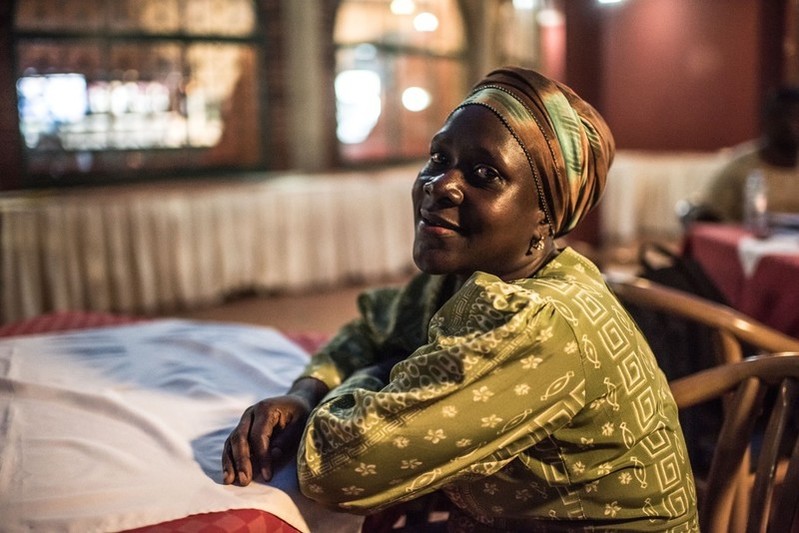
Brighter future for former sex worker and her daughter
The Safe Abortion Action Fund (SAAF) which is hosted by IPPF was set up in 2006 in order to support grass-roots organisations to increase access to safe abortion. One such organisation which received support under the last round of funding is called Lady Mermaid's Bureau. My name is Joan and I am 35. I was a sex worker for five years but now I have a fridge and I sell fruits and juice. When the people from Lady Mermaid's Bureau (LMB) met us, they told us to come and make crafts, which I'd never done before. Then Ali from the LMB told me to get a small fridge to start off. I’m making juice now. Now business is fine and I get money for my daughter. She is at university. Her father was not helpful so I had to get money to look after myself and my daughter. Sex workers go through a lot of difficulties. People don’t like you. Sometimes they chase you. Some catch you by force (rape). The police are not good. They chase us and others force us to have sex with them. They don’t give you money. They have sex for nothing. They are not good at all. I kept myself safe from pregnancy while working as a sex worker. I went to the clinic, I got the pills. Now I’m on injections. It has worked very well for me, they are good. When you go to the clinic, they tell you what to do but some people use unsafe abortion practices, like herbs and people are dying from doing that. My neighbour went through unsafe abortion with herbs. She died. My life has completely changed. It changed a lot and I don’t want to see anyone on the street. The street is not good. There are many girls on the street but they are not in a good condition. Ali (a programme officer at LMB) is very good friend. He is like a mother. He told me 'let’s go and buy the refrigerator'. It was 300 shillings (approximately $85). He gave me counselling and helped me to get off of the streets. Stories Read more stories about the amazing success of SAAF in Uganda
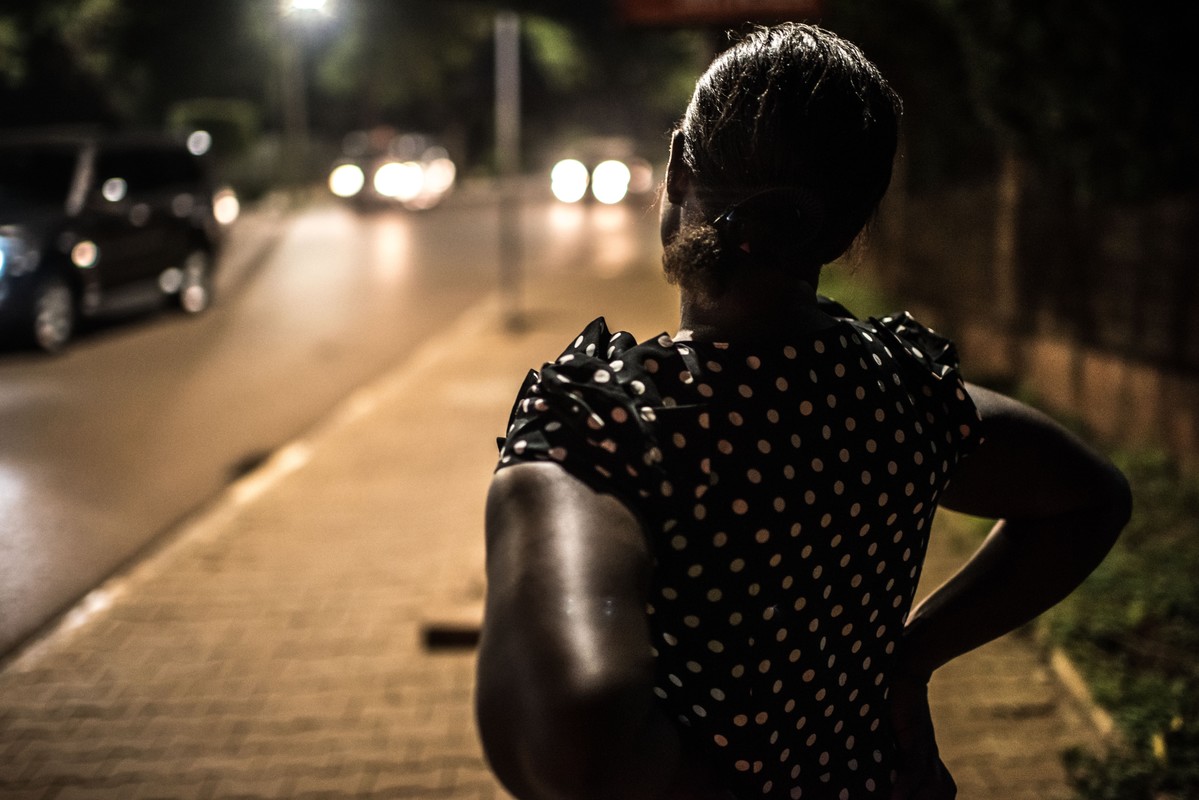
Helping jailed sex workers to be treated with dignity
The Safe Abortion Action Fund (SAAF) which is hosted by IPPF was set up in 2006 in order to support grass-roots organisations to increase access to safe abortion. One such organisation which received support under the last round of funding is called Lady Mermaid's Bureau. I’m called Debora and I’m 20-years-old. This is my fourth year as a sex worker. From it I earn some living. I get some money to pay rent, I have a six-year-old kid. I pay for his school fees because the dad abandoned me. Now I am earning and living as an individual. Sometimes you can go to the street and you don’t get any clients. So the next day you have to move on with life. So apart from sex work I wash people's clothes to get some money. However it is also not enough. I began this job after I had lost my parents.Then I had gone to my brother’s place but his wife didn't like me so my brother chased me away. I got a man; I stayed with him for some time. But when I got pregnant, he just ran away from me. And since then, I don’t know where he is and I don’t have any of his contacts. So I found life hard. That is why I decided to come, after a friend of mine briefed me about sex working. It is not really easy to be a sex worker because it is illegal and there are some harsh conditions. You don’t fit in to society because others see you as someone who can be neglected. And also another problem, these guys or the clients…. after you negotiate the payments he just beats you or runs away. You cannot report him anywhere because sex work is illegal here. And they arrest us. I have been arrested four times. The police abuse us and at times they also take advantage of us. I remember one time, he arrested me, then reaching there, he said if you want me to release you, then you also have to give me sex. I had to because I had no option by then. Lady Mermaid’s Bureau has helped us a lot because they get us some lawyers to get us out of jail. I will never forget that moment because they were taking us to prison not even to the police station. They brought us some doctors who taught us how we can prevent STIs, they gave us free condoms, they have also helped us with safe abortions after rape. Unsafe abortion is too much. I remember one time I got pregnant but I couldn’t have it because I already have a child I’m taking care of and my earning is not much. So I decided to just abort locally with some herbs that you can get. I tried it, actually I was going to die. They didn’t work. I was totally disturbed and I was rushed to the hospital. I was bleeding a lot. Safe abortion is so good, I wish they can sensitise everyone in our society even if you are not a sex worker. You can get pregnant when it is not the right time. But safe abortion is so safe just like the name sounds. The biggest challenge for women who do sex work is the law because we do it illegally. Everyone has her own way of getting the clients. Others have our numbers. If not you can come on the street. To be a sex worker is so hard. It is so hard. We just pray that one day they hear us because we didn’t want to do it but it is also a job and you get some money of course. Lady Mermaid’s has helped us because they really comfort us. You just go there anytime you have a problem. If you need condoms they give you them, if you need advice then counsellors can help you. If it wasn’t there, we would have no freedom of speech. Society will abandon you. You cannot go anywhere and say that you feel free that you are sex worker. There is no society you can be free with apart from Lady Mermaid's Bureau because they treat us like we are normal. Stories Read more stories about the amazing success of SAAF in Uganda
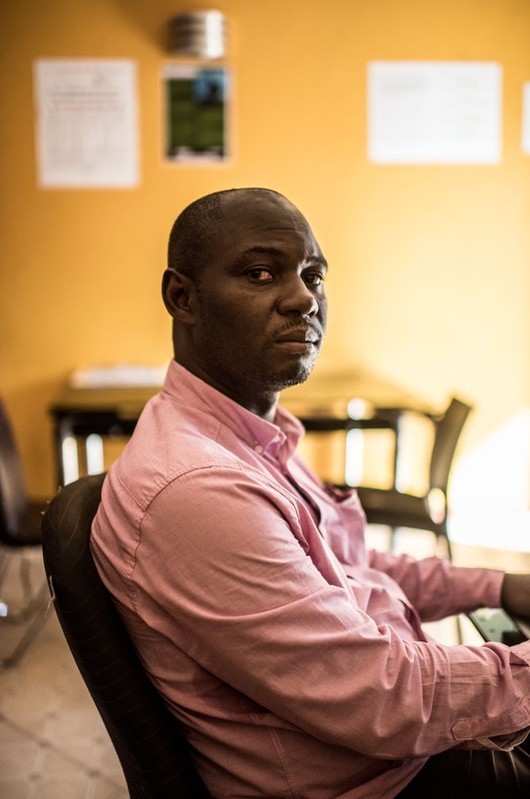
From garbage collector to sexual health counsellor
The Safe Abortion Action Fund (SAAF) which is hosted by IPPF was set up in 2006 in order to support grass-roots organisations to increase access to safe abortion. One such organisation which received support under the last round of funding is called Lady Mermaid's Bureau. My name is Ali. I have worked with Lady Mermaid’s Bureau (LMB) for eight years as a programme officer and I am also a consultant on safe abortion. LMB was founded by three sex workers in 2002. It is the oldest sex worker’s organisation in Eastern Africa. When it started, LMB arranged for sex workers to meet Parliament and expose all the problems that sex workers have to face. They originally thought the government would only take two years to legalise sex work. That was obviously not the case and as advisers we said it would take a lot of time talking about their sexual health and other problems. Before I became an adviser I was working with a garbage collection company. I was the night supervisor and I had a lot of friends who were sex workers. They would talk with me and tell me how they wanted a street where they would not be arrested. These were the workers who originally started Lady Mermaid’s Bureau. First it was for fellow sex workers to help them when they were arrested by the police. Then I came in to advise them in the set up and do what I could do to help them reach their goals. There were many problems. Talking about sex work was a taboo. When I became part of LMB nobody was talking about sex workers. The women’s movement was against sex workers. They thought it was exploitative to all women. So we had to engage most of them in our programmes until they came on board to realise sex workers rights. When the sex workers went to Parliament in 2004, that meeting acted to provide an amnesty to the women. Now they can take cases to the police. Previously, no sex worker would go to the police to report a client because she would just end up being arrested. Abortion among sex workers is still a very major issue that has to be looked at by the government. Many women are very vulnerable to becoming sex workers. They are poor, from slums and a lot of them are students. They face a lot of violence: rape, the police themselves use them (ask for sex) and then there are clients who rape the women. So there are a lot of incidences of violence that turn into unwanted pregnancies. Most of the women will resort to aborting if they face such violence because they don’t know the father of the child. If you go to a private clinic it can cost 120,000 to 250,000 Uganda shillings. Also, service providers will not tell the sex workers that there is a cheaper way of doing abortions. They try to escalate the costs. Sex workers aren't told about how they can take misoprostol from home and then they can follow up onto the clinic. So the service is perceived to be high although it could be cheaper to abort. We have seen women who have not been able to access safe abortion. We have a young lady here who tried to abort unsafely because it was too expensive for her to have a safe abortion. Again she was afraid that she would be arrested, she was afraid that nurses at the clinic would stigmatise her. So she tried to abort the local way but it didn’t work and now she has a child. Countrywide the problem is lack of contraceptives: you find that some women have aborted two or three times, and then there's the problem of not counselling on contraceptive use and the lack of contraceptives in private and public health institutions. In many cases the men don’t want to use the male condoms and there aren't many female condoms on the market and they are extremely expensive. It is really very important for women to have information about contraceptives and can access contraceptive methods. These days we have sex workers ranging from 14 year to 38 years. Most of these young girls have been trafficked from the villages. Some come from the villages where they are promised some work in the city and they end up into sex work. Some are refugees who have come from Congo, others have come from Rwanda and others have come from South Sudan. We also have sex workers who are students from the colleges. And then we have young ladies who have grown up in slum areas of Kawempe, Katanag in Makerere, Natete who have been orphaned and left to fend for their families. There are the older ladies who work on the streets to sell tomatoes. They give out their numbers to clients or men who can raise them on call. And another group of older women work from their homes in slum areas where pimps take customers to them. There are also some high-class sex workers from 20-32 years old. They work in posh shops in Kampala where they give out business cards. There are sex workers who have pimps that use social media like Facebook and badoo to expose the women. Men just call the pimp who will bring the sex worker. Getting contraceptives to girls under 14 is also a big issue which parliament needs to look at. Now a lot of young ladies find themselves in distress. Most of them come from the villages and most of them have lost parents. They enter into sex work from 14 and they find themselves becoming pregnant. Since contraceptives are restricted to these ages, it is increasing the problem rather than solving it. There is need for counselling on contraceptives at least from ages of 14 and then there is need for a contraceptive referral centre. Another issue is a lot of rumours that contraceptives damage the body of the women and that it changes the hormones, causing infertility. So these women in the end don’t talk about these problems when they visit health centres and the doctor will not follow up. The women end up concluding that every contraceptive is damaging to their bodies. This project started to have an impact in its second and the third year. Sex workers had learnt about safe services, and how to tell a health institution that they had had a miscarriage. The majority of the feedback has been positive. Abortion should be legalised. The legislators should learn about the stories and they can get a precise picture of the level of deaths caused by unsafe abortion. Stories Read more stories about the amazing success of SAAF in Uganda
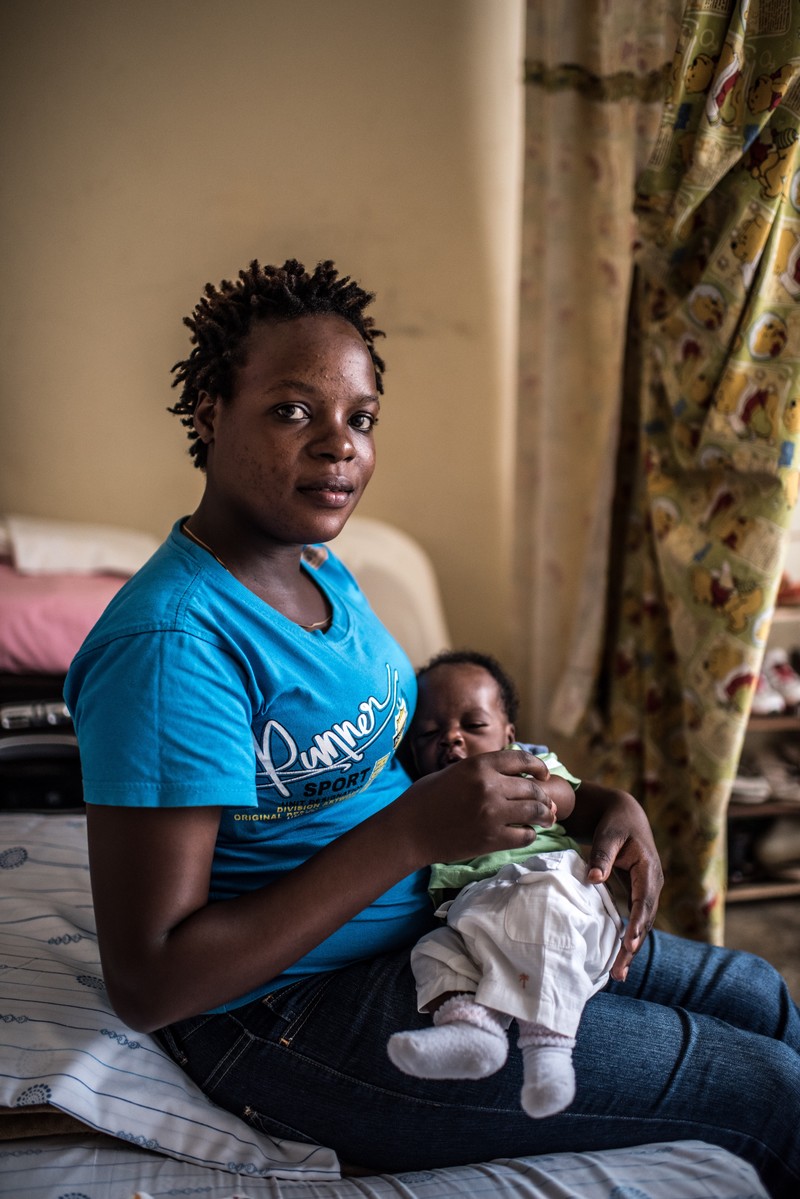
Life-changing post-abortion care for sex workers
The Safe Abortion Action Fund (SAAF) which is hosted by IPPF was set up in 2006 in order to support grass-roots organisations to increase access to safe abortion. One such organisation which received support under the last round of funding is called Lady Mermaid's Bureau. My name is Masitula. I’m a single mother of two sons and I'm a sex worker. I live in Nansana Wakiso district, it is near Kampala. Every evening I travel 10 kilometres to Natete, a Kampala city suburb where I am a sex worker. I got pregnant after a client refused to wear a condom. I attempted to abort using some unsafe abortion practices but I was unsuccessful. I now have a two-month old baby whose father I do not know. My eldest son is seven years, he is in primary school. The other one is two months. I became a sex worker after a friend advised me that this job can provide me with some income. My husband left me six years ago for another woman when my eldest was only one. He doesn’t give me a single penny for taking care of his son. I used to be a teacher but the income is little. So I have been a sex worker for six years. There are many problems for sex workers here. One is with the police. The police catch us, take our money and sometimes force us to have sex. The other problem is that those men who buy us, some of them don’t pay. They just use us and they don’t pay. It affects me because when you go to work and you don’t get any income, it is bad. They use you for free. And I don’t have anyone to take care of my kids. So sometimes I don’t work I just stay at home because no one will take care of my kids. I live only with my children. I don’t have anyone else. Sometimes I have to take my baby with me and if I get a job, then I give him to my friend until I finish. It is difficult with such a little baby but there is nothing I can do. I don’t even know the father. He just forced me. He said that he will not put on a condom. So that is why I tried to abort with herbs, but it didn't work.They caused me a lot of pain and I was about to die. I didn’t go for a safe abortion because with this government of ours, it is not easy to go to the hospital and tell them that I want to abort. You just go and tell them that you want medicine for ulcers. But Lady Mermaid's Bureau, supported by SAAF, has helped me and other sex workers. When you call them they come immediately. When you are sick they take you to hospital. In everything they are good. When I get some problems, I just go and tell them. They do what other people can’t do. It has changed my life because I now have a friend. They are my friends. I take them as part of my family because I don’t have any family. My father died, I don’t have a mother and my husband left me. They are my family now. Abortion should be legal and also sex work because it is a job. We don’t want to do it. It's just because we don’t have anything else and that is why we do it. So the government should also take us as human beings. No one treats us as human beings. And to prevent women from having unsafe abortions the government should provide people with jobs and factories to work in. So that they don't have to do sex work because it affects these girls, and some of them are like me. We don’t have jobs, you go and look for a job, you don’t find the job and you just find yourself doing this sex working job instead. Stories Read more stories about the amazing success of SAAF in Uganda

Safe Abortion Action Fund in Uganda
Hosted by IPPF, the Safe Abortion Action Fund (SAAF) supports grassroots organisations to increase access to safe abortion among vulnerable populations, worldwide. These stories could have been different Safe abortion is heavily restricted in Uganda, yet gender inequality and sexual violence are widespread. Hosted by IPPF, the Safe Abortion Action Fund is helping vulnerable women to turn their lives around. People are learning about safe abortion and fewer girls are dying. Community attitudes have been transformed and social stigma has started to give way to human rights and understanding. VODA Educating their peers about unsafe abortion LADY MERMAID'S BUREAU A graduate in need turns to sex work VODA Tackling taboos about abortion LADY MERMAID'S BUREAU From garbage collector to sexual health counsellor VODA Working to stop unsafe abortion for school girls LADY MERMAID'S BUREAU Life-changing care for sex workers Two grassroots projects changing women's lives VODA (Volunteers for Development Assistance) is a transformational program, run by volunteers and students who help friends and peers in rural Uganda. Previously many young girls were dying from unsafe abortions, but now communities are rallying to provide support, information and access to contraception. Meet the young friends of VODA The LMB (Lady Mermaid's Bureau) provides much needed legal aid and healthcare to sexworkers in Uganda. Exposed to rape and sexual violence, these sexworkers are gaining their confidence through hard-to-access post-abortion care and the LMB support network - an invaluable help in itself for those without family. Meet the women helped by LMB
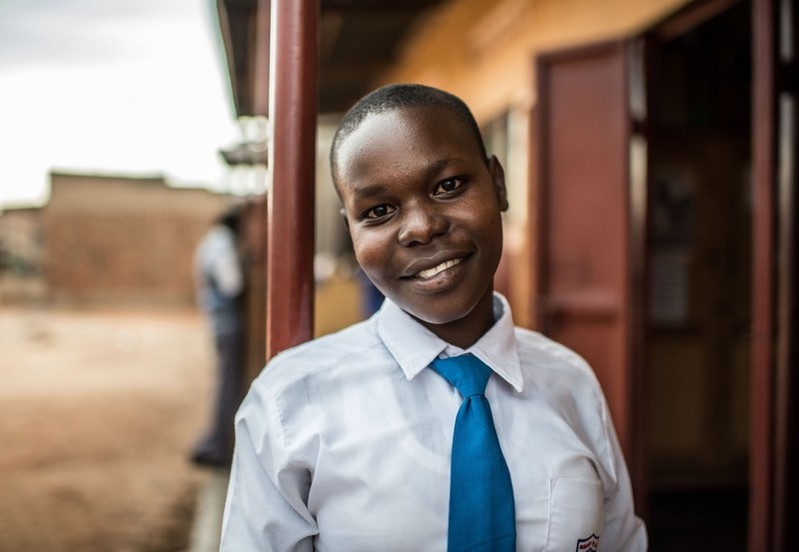
Saving lives in rural Uganda
The Safe Abortion Action Fund (SAAF) which is hosted by IPPF was set up in 2006 in order to support grass-roots organisations to increase access to safe abortion. One such organisation which received support under the last round of funding is called Volunteers for Development Association Uganda (VODA). When Noah Musoke was a young man his older sister had an unsafe abortion that nearly took her life. Luckily, his sister was able to tell him what had happened. He put her on his bicycle in rural Uganda and took her to the nearest health centre where she received post abortion care. Abortion was highly restricted in Uganda then and remains so today. The law and constitution are very unclear as to when an abortion is allowed and in practise it is almost impossible to receive a legal abortion in the country. It was because of these legal restrictions that Noah’s sister resorted to crude unsafe abortion which haunted her for life. “She never had a child. She lost many marriages; she lost many of them until she died. I think if there was a safer way to do this my sister would have had happier life” said Noah, one of the few Ugandan men advocating for access to safe abortion in Uganda. His experience led Noah to set up an inspirational organization called Volunteers for Development Association in Uganda (VODA Uganda) which, following a successful application to the Safe Abortion Action Fund (SAAF), in 2013 has been helping women and girls to avoid unwanted pregnancies and to access post abortion care. The SAAF funded project works with schools, communities and healthcare providers, training people to become community counsellors and referrers who are able to listen to young people, offer advice and refer them for services to well-trained local health providers. “People are conservative on some issues and one of very sensitive issues is sexual reproductive health and most especially abortion. Many people have very negative feelings about this yet it is a cause of maternal mortality in Uganda‚” Noah said. The 2016 Uganda Demographic Health Survey put teenage pregnancy at 25% from the 24% in the previous surveys. The increase means 1 in every 4 girls aged between 15-19 years in Uganda is either pregnant or already has a baby. It is for this reason that VODA Uganda’s project targets school girls in Kasawo and Namuganga sub counties located in Mukono district. “Here sex is assumed to be for married people and it is a private issue. Now when these young people, for various reasons, engage in sex, they get pregnant and they know they will miss school or their parents will be very harsh to them so they resort to unsafe abortion” he said. “And as a result, people resort to very crude methods in case she needs to have an abortion. They will resort to very unsafe methods which have always led to death and serious complications,” he adds. In the three years since VODA Uganda started their SAAF funded project they have been able to see some very positive results. They have changed perceptions about abortion in the community, bringing community leaders and health workers on board, explaining the problems of unsafe abortion and directing girls and women to post-abortion care services. Currently there are four health centres in the two sub counties that are offering post-abortion care, contraception and counselling to girls and women referred there by VODA Uganda school counselors as well as community volunteers. At a health facility in Namuganga, Anne* has just received post-abortion-care services from a midwife, Grace. The 14-year-old nearly died of post-abortion complications after her grandmother used local herbs to terminate her pregnancy. “A man just caught me — or raped or defiled me— when I had gone to visit my grandmother. After he had finished, he told me to go back home and never to tell anyone about it” she said. The midwife at the facility, Grace, said the cases of unsafe abortion especially among teenage girls are widespread. “Most of them do come here and the situation is very bad, when they are bleeding severely. We don’t have blood at the health centre so we just give first aid then we refer to the main hospital.” Grace explained. “They go to local herbalists and they give them some drugs. Some of them tell me that they give them emilandira (roots) which they insert inside there to rupture the membranes.” She added. Anne is lucky she did not die. With the successful post-abortion-care, she looks forward to returning to school next term. At the next health centre in Kasawo, Josephine, the midwife would never have thought of helping girls and women with abortion services before she was trained by VODA Uganda about the need to avert the deaths that were occurring in villages due to unsafe abortion. “I used to have negative attitude about it. Because according to my religion, it was not allowed in the church. But again when you look into it, it’s not good to leave someone to die. So I decided to change my attitude to help people.” revealed Josephine. Today, she is happy that fewer women and girls are dying because of unsafe abortion. “VODA people have helped us. We even provide the clients with family planning to avoid another pregnancy since their hormones are very sensitive” she added. In Namuganga and Kasawo, the approach of using school girls and a team of volunteers has worked in changing community perceptions about abortion as well as helping girls to access information about unwanted pregnancies. At Kakoge village, 35-year-old John Owoli is one of the VODA Uganda Community volunteers. He knows that his Catholic religion does not support abortion. However Owoli who is a catechist at a nearby church has used his position to preach against unsafe abortion. Asked why? He replied: “Just to save life. I attended two burials from unsafe abortions because they had used local drugs so I saw that it was a good thing to participate in saving people’s lives.” Owoli, a father of six said before he joined VODA Uganda, he had heard about family planning and unsafe abortion and he did not think they were big issues. “But after this training, I saw it was a serious issue. And I must be included in stopping it. Because if we stop this kind of dying, most especially the young ones, it means that development is coming to our community”. Most girls according to Owoli have changed their behaviours by using condoms, family planning, abstinence and now know about safe abortion. Owoli would like to see more health facilities constructed closer to the villages so that those referred for post-abortion care services don’t have to walk for seven kilometers to a health centre. *not her real name Stories Read more stories about the amazing success of SAAF in Uganda A mother's heart break after losing teen daughter to unsafe abortion A volunteer's special understanding of how safe abortion can save lives Religious leaders help tackle unsafe abortion Collaborating with public health providers Working to stop unsafe abortion for school girls Tackling taboos about abortion $(document).ready(function(){ $(".owl-carousel").owlCarousel({ items:3 }); });
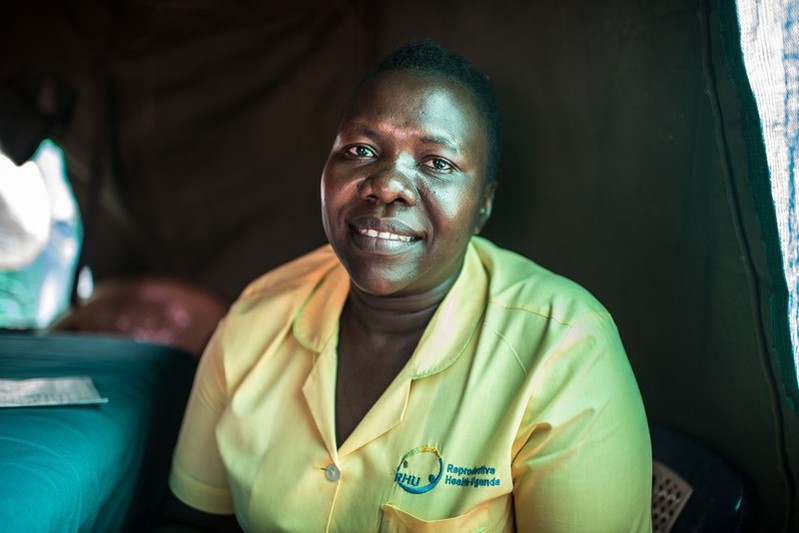
All of the clients, all of the time: Our staff never turn anyone away
At the end of a long day, Anicia, closes the clinic with praise for her colleagues who never turn anyone away. "We open at 8am. From 8am we will be receiving a variety of clients for different services - whether post-abortion care, whether antenatal care - we have to give them all the services. We may end up to 10pm, because we'll never chase our clients, we'll never close the place when we have a client inside. People come when they have no hope. You receive them, and you give them hope by treating them properly and giving them quality services. The client gets better and will never forget you. And follow them up on the phone. "How are you doing?" It's good for us to know that they're doing well. Others even tell us 'The way you handle us, we love it so much'." Follow a day in the life of our team and clients in Gulu, Uganda 07:00 08:00 9:00 10:00 11:00 12:00 13:00 14:00 15:00 16:00 17:00 22:00 Prev Next 7am: The team prepare for the long day ahead "Every year tens of thousands of Ugandans come to our clinic. Everyone is welcome. Here are just a few of the people that we served in one day last month." READ MORE 8am: Nancy, 19, becomes a volunteer "I was suffering but when I came here, I was treated and I got better. Now I'm inspired to volunteer here" READ MORE 9am: Monica, 25, a sex worker's story "I am sex working. I came here for Hepatitis B testing and also counselling. I have so many personal problems, but here….they’re so caring." READ MORE 10am: Jane, 23, saved by family planning "After multiple miscarriages, family planning here has helped me a lot. I'm glad we've been able to space the number of children we've had. I am not growing old, I am fresh." READ MORE 11am: Vicky, handling disabilities "I'm deaf so accessing services is hard, but here they really try to speak in sign language." READ MORE 12pm: Dorcus, first time patient "This is the first time I've ever come here, I like the service. They give good counselling so I recommend coming." READ MORE 1pm: Christine, 45, a grandmother's tale of living with HIV "I am living with HIV and had HPV. They treated me and now I'm free of cervical cancer." READ MORE 2pm: Lilian, struggling mother of six with sickle cell " I have sickle cell disease and so do all my children. I want to have my tube removed so that I don't get pregnant again but I don't know if my husband will allow it." READ MORE 3pm: Brenda and Francis get fertility treatments "Fertility treatment is a sensitive issue in Uganda but they help us a lot and we get proper treatment." READ MORE 4pm: Joyce, 25, repected regardless of her disability "I realised that at this place they don't segregate. Us people with disabilities have challenges at the main hospitals. You go there, people around look at you as if you are not a human being and you don't fall sick." READ MORE 5pm: Mobile clinic provides outreach services to remote villages "Our outreach to remote communities is a 'one-stop-centre'. We give family planning, vaccines for HPV, malaria, and Hepatitis B, HIV testing and more." READ MORE 22pm: Still giving the last client our very best "Together, we have great teamwork. Sometimes we're still working up to 10pm because we never chase out our clients. We’ll never close the place when we have a client inside. People come when they have no hope." READ MORE
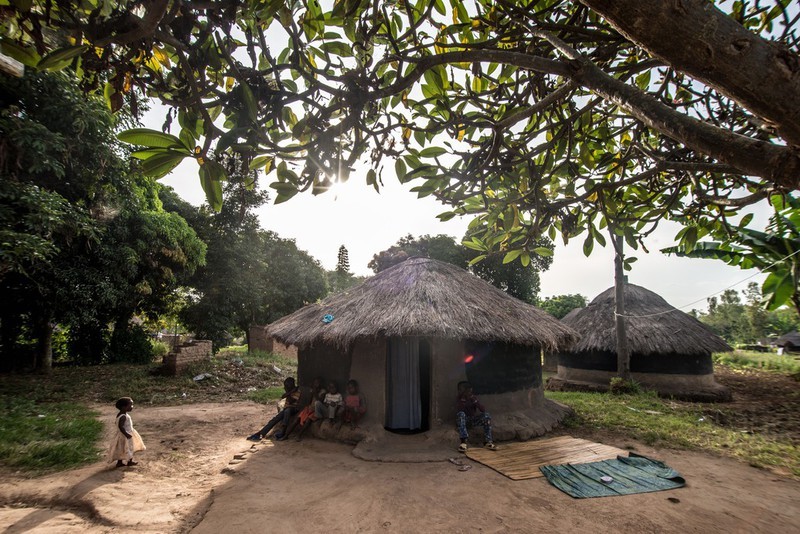
Getting services to the most remote areas in Uganda
Every Thursday a team from RHU Gulu district provides a mobile outreach clinic in Atega village in the Omoro district in Northern Uganda. The outreach team goes out into this poor, remote area which would otherwise not have access to sexual and reproductive health services. The night before the outreach clinic RHU driver, Robert Nyeko and Godfrey Bedimot load up tents, chairs, medical equipment and supplies. The clinic needs to be set up and by 7am ready to receive clients from 8am. The outreach clinic provides a range of services including diagnosis, testing and treatment, family planning such as fitting implants, providing condoms and HPV vaccines. Laboratory technician, Denis Bongonyinge carries out testing for malaria, Hepatitis B, HIV/AIDS, pneumonia and other infections. Other members of the team provide immunisations and vaccinations. Typically men, women and children start arriving at the clinic by 7:30am. Two volunteers are on hand to direct them to the appropriate place to get the services they need. Some clients need a range of services. At 8am service provider, Anicia Filda, popularly known a 'Mama' in the community is ready with her team to start the day. There are now more than 200 clients waiting to be seen; with more people arriving to join the long queues. The longest queue is for the immunisation and vaccination services. The majority have come for either the Hepatitis B vaccine, which is a big threat in this community. Priority is given to the many young girls lining up for the Human Papilloma Virus (HPV) vaccine. Denis Bongonyinge takes blood samples for rapid tests for malaria, HIV, HPV and a range of other infections. Each client carries an exercise book where Denis records their results which is then taken to the staff giving out prescriptions. 32-year-Robert Otim pushes his bicycle to the outreach clinic. The single father has ridden 10 kilometres with his two young children. He lost his wife to Hepatitis B when their daughter was just six months. His four-year-old son was born prematurely and is now disabled. He has come today for his last Hepatitis B immunisation. His children need to be vaccinated as well as treated for malaria and coughs. Looking at the long queue, he says he doubts whether he will get the service today but he is lucky as one of the team who once treated his son, Geoffrey, notices Robert and they are given priority for treatment and prescriptions. Already by midday, one of the teams delivering minor surgeries, postnatal services, family planning and post abortion care have seen 47 mothers. This is almost the same as the number of clients they would treat at the Gulu Clinic during a normal day. Anicia Filda sends the driver to collect more supplies from the clinic; the stock is starting to run low because demand is so high There is no break for the team. Samuel Kedi, the only clinician at the outreach camp stands up, and picks up a bottle of water from his backpack for a quick drink before continuing with the next client. The clinic continues to see clients well into the evening. The outreach clinic is scheduled to finish by 5pm but Anicia says there is not one day they have closed on time: “We cannot close when clients are still lining up. It’s the same at the clinic in Gulu,” she says. As the clinic draws to a close for the day, the teams complete their report which records details of the numbers clients served, the types of services delivered and supplies of stock. It has been another busy but successful day for Anicia and her team. Provision of integrated services in such remote areas is vital for the local community; many men, women and children would not be able to receive the types of treatment and care that RHU works diligently to provide. Follow a day in the life of our team and clients in Gulu, Uganda 07:00 08:00 9:00 10:00 11:00 12:00 13:00 14:00 15:00 16:00 17:00 22:00 Prev Next 7am: The team prepare for the long day ahead "Every year tens of thousands of Ugandans come to our clinic. Everyone is welcome. Here are just a few of the people that we served in one day last month." READ MORE 8am: Nancy, 19, becomes a volunteer "I was suffering but when I came here, I was treated and I got better. Now I'm inspired to volunteer here" READ MORE 9am: Monica, 25, a sex worker's story "I am sex working. I came here for Hepatitis B testing and also counselling. I have so many personal problems, but here….they’re so caring." READ MORE 10am: Jane, 23, saved by family planning "After multiple miscarriages, family planning here has helped me a lot. I'm glad we've been able to space the number of children we've had. I am not growing old, I am fresh." READ MORE 11am: Vicky, handling disabilities "I'm deaf so accessing services is hard, but here they really try to speak in sign language." READ MORE 12pm: Dorcus, first time patient "This is the first time I've ever come here, I like the service. They give good counselling so I recommend coming." READ MORE 1pm: Christine, 45, a grandmother's tale of living with HIV "I am living with HIV and had HPV. They treated me and now I'm free of cervical cancer." READ MORE 2pm: Lilian, struggling mother of six with sickle cell " I have sickle cell disease and so do all my children. I want to have my tube removed so that I don't get pregnant again but I don't know if my husband will allow it." READ MORE 3pm: Brenda and Francis get fertility treatments "Fertility treatment is a sensitive issue in Uganda but they help us a lot and we get proper treatment." READ MORE 4pm: Joyce, 25, repected regardless of her disability "I realised that at this place they don't segregate. Us people with disabilities have challenges at the main hospitals. You go there, people around look at you as if you are not a human being and you don't fall sick." READ MORE 5pm: Mobile clinic provides outreach services to remote villages "Our outreach to remote communities is a 'one-stop-centre'. We give family planning, vaccines for HPV, malaria, and Hepatitis B, HIV testing and more." READ MORE 22pm: Still giving the last client our very best "Together, we have great teamwork. Sometimes we're still working up to 10pm because we never chase out our clients. We’ll never close the place when we have a client inside. People come when they have no hope." READ MORE

Joyce's story - empowering disabled clients with services in rural communities
Joyce Auma, 25, is a business administration graduate currently working as a data clerk with Gulu Women with Disabilities Union. The union has partnered with Reproductive Health Uganda to extend sexual and reproductive health services to women living with disabilities in Gulu and neighbouring districts in Acholi. Joyce, who lost the use of her legs in childhood, is one of the women with disabilities that normally receive services at Gulu Clinic. “I found out about RHU because they are our partners at Gulu Women with Disability Union. I first came to the clinic to test for HIV and other STIs. We also receive their other services like family planning and cancer screening to people with disabilities.” “The first time I came here I was warmly welcomed. They're very good at talking to the youth. Though the place was new for me, I was given service as if it was not my first time.” Says Joyce. "Us people with disabilities have challenges at the main hospitals. People around look at you as if you are not a human being and you don’t fall sick.” Joyce has since been a regular client of RHU for HIV testing, cancer screening and other diseases. She says her status exposes her to many risks of infection which has to be regularly checked for. “I always come here for testing, there is also cancer screening. They don’t segregate me because of my disability. They give you the services you need.” Follow a day in the life of our team and clients in Gulu, Uganda 07:00 08:00 9:00 10:00 11:00 12:00 13:00 14:00 15:00 16:00 17:00 22:00 Prev Next 7am: The team prepare for the long day ahead "Every year tens of thousands of Ugandans come to our clinic. Everyone is welcome. Here are just a few of the people that we served in one day last month." READ MORE 8am: Nancy, 19, becomes a volunteer "I was suffering but when I came here, I was treated and I got better. Now I'm inspired to volunteer here" READ MORE 9am: Monica, 25, a sex worker's story "I am sex working. I came here for Hepatitis B testing and also counselling. I have so many personal problems, but here….they’re so caring." READ MORE 10am: Jane, 23, saved by family planning "After multiple miscarriages, family planning here has helped me a lot. I'm glad we've been able to space the number of children we've had. I am not growing old, I am fresh." READ MORE 11am: Vicky, handling disabilities "I'm deaf so accessing services is hard, but here they really try to speak in sign language." READ MORE 12pm: Dorcus, first time patient "This is the first time I've ever come here, I like the service. They give good counselling so I recommend coming." READ MORE 1pm: Christine, 45, a grandmother's tale of living with HIV "I am living with HIV and had HPV. They treated me and now I'm free of cervical cancer." READ MORE 2pm: Lilian, struggling mother of six with sickle cell " I have sickle cell disease and so do all my children. I want to have my tube removed so that I don't get pregnant again but I don't know if my husband will allow it." READ MORE 3pm: Brenda and Francis get fertility treatments "Fertility treatment is a sensitive issue in Uganda but they help us a lot and we get proper treatment." READ MORE 4pm: Joyce, 25, repected regardless of her disability "I realised that at this place they don't segregate. Us people with disabilities have challenges at the main hospitals. You go there, people around look at you as if you are not a human being and you don't fall sick." READ MORE 5pm: Mobile clinic provides outreach services to remote villages "Our outreach to remote communities is a 'one-stop-centre'. We give family planning, vaccines for HPV, malaria, and Hepatitis B, HIV testing and more." READ MORE 22pm: Still giving the last client our very best "Together, we have great teamwork. Sometimes we're still working up to 10pm because we never chase out our clients. We’ll never close the place when we have a client inside. People come when they have no hope." READ MORE
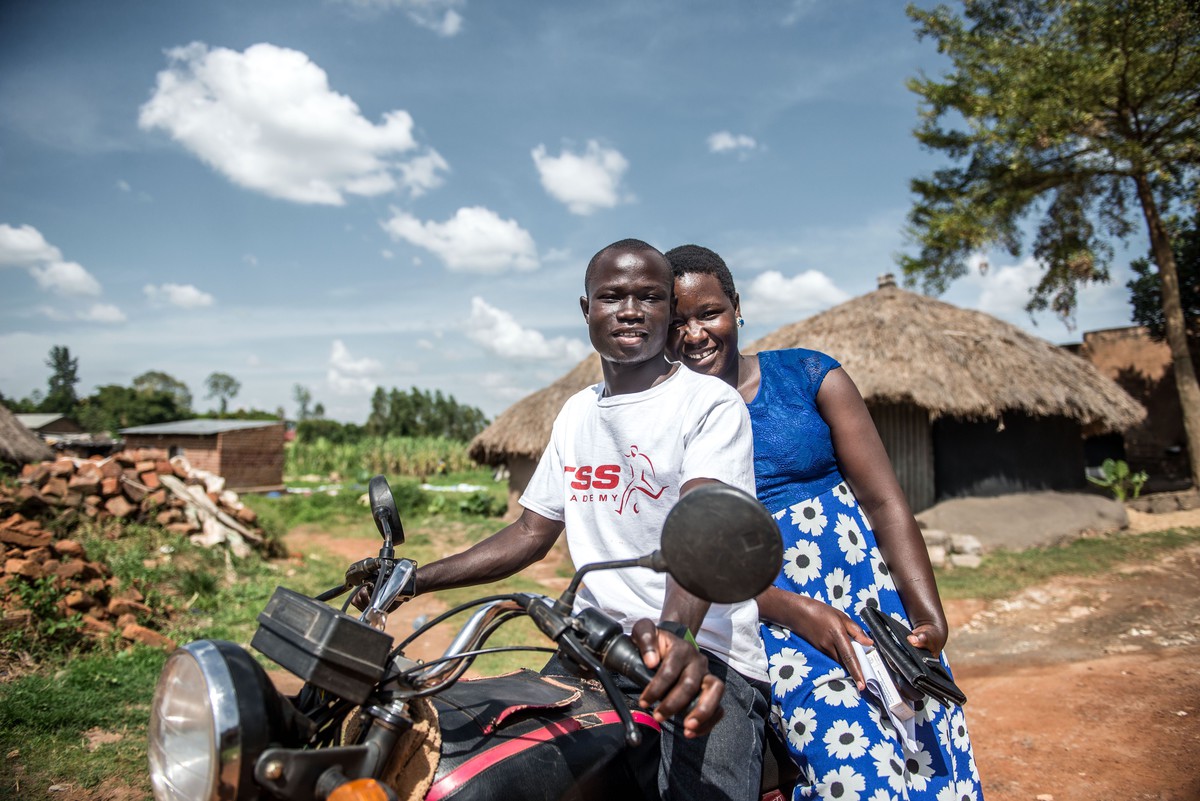
Breaking gender taboos
After two years of struggling to conceive Brenda Abalo and her husband, Francis Opio, decided to visit Reproductive Health Uganda's clinic in Gulu. Much as there is progressive attitude to modern medicine in this northern Uganda region, fertility treatment remains a sensitive issue for both men and women. Anxious in the waiting room, Francis said he had decided to come to RHU with his wife because he heard their radio show about a similar problem. In addition to fertility treatments, the couple was also given counselling and treatment for another condition. “After sex, my wife was in pain. She was complaining a lot three weeks ago. I also felt some itches. They have given us treatment which we are still continuing with,” said Francis. The couple was given information to ensure that Brenda was in the best possible health to conceive. She is to undergo treatment to reduce the prolactin level in the blood and correct the hormonal imbalance. “This is not my first time at this clinic," says Brenda. “The service here is better in comparison with other health centres. They give much better attention to the patient.” “RHU has been supporting a lot of people. They helped a friend of mine; she was having a problem with miscarriage. So she came here and got properly treated” Follow a day in the life of our team and clients in Gulu, Uganda 07:00 08:00 9:00 10:00 11:00 12:00 13:00 14:00 15:00 16:00 17:00 22:00 Prev Next 7am: The team prepare for the long day ahead "Every year tens of thousands of Ugandans come to our clinic. Everyone is welcome. Here are just a few of the people that we served in one day last month." READ MORE 8am: Nancy, 19, becomes a volunteer "I was suffering but when I came here, I was treated and I got better. Now I'm inspired to volunteer here" READ MORE 9am: Monica, 25, a sex worker's story "I am sex working. I came here for Hepatitis B testing and also counselling. I have so many personal problems, but here….they’re so caring." READ MORE 10am: Jane, 23, saved by family planning "After multiple miscarriages, family planning here has helped me a lot. I'm glad we've been able to space the number of children we've had. I am not growing old, I am fresh." READ MORE 11am: Vicky, handling disabilities "I'm deaf so accessing services is hard, but here they really try to speak in sign language." READ MORE 12pm: Dorcus, first time patient "This is the first time I've ever come here, I like the service. They give good counselling so I recommend coming." READ MORE 1pm: Christine, 45, a grandmother's tale of living with HIV "I am living with HIV and had HPV. They treated me and now I'm free of cervical cancer." READ MORE 2pm: Lilian, struggling mother of six with sickle cell " I have sickle cell disease and so do all my children. I want to have my tube removed so that I don't get pregnant again but I don't know if my husband will allow it." READ MORE 3pm: Brenda and Francis get fertility treatments "Fertility treatment is a sensitive issue in Uganda but they help us a lot and we get proper treatment." READ MORE 4pm: Joyce, 25, repected regardless of her disability "I realised that at this place they don't segregate. Us people with disabilities have challenges at the main hospitals. You go there, people around look at you as if you are not a human being and you don't fall sick." READ MORE 5pm: Mobile clinic provides outreach services to remote villages "Our outreach to remote communities is a 'one-stop-centre'. We give family planning, vaccines for HPV, malaria, and Hepatitis B, HIV testing and more." READ MORE 22pm: Still giving the last client our very best "Together, we have great teamwork. Sometimes we're still working up to 10pm because we never chase out our clients. We’ll never close the place when we have a client inside. People come when they have no hope." READ MORE







